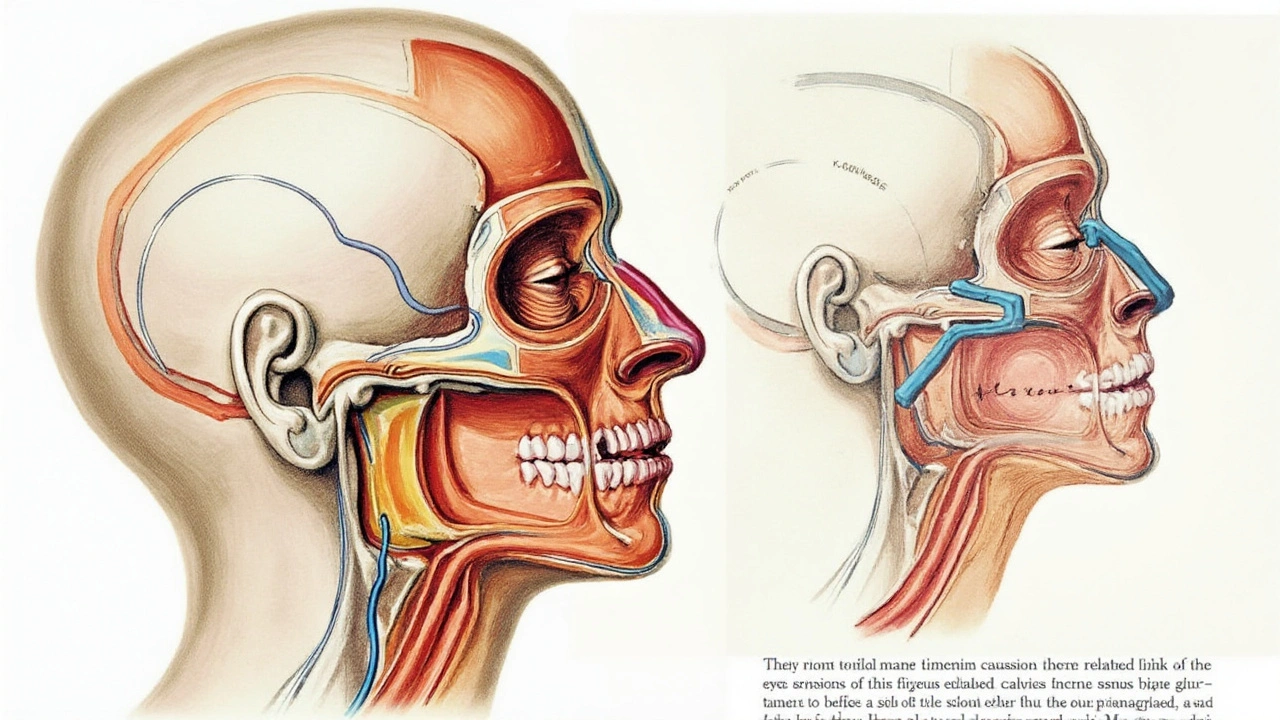Sinus Infections: What You Need to Know
Sinus infections, or sinusitis, happen when your sinus cavities get inflamed, usually due to an infection. It can make your face feel stuffy, cause pain around your eyes or forehead, and sometimes bring on a bad headache or fever. Most sinus infections come after a cold or allergies, when blocked sinuses trap bacteria or viruses inside.
If you feel pressure in your face, have thick nasal discharge, or your head just won’t stop aching, it might be a sinus infection. It’s pretty common and for most people, these infections clear up on their own within 10 days. But if symptoms stick around or get worse, it’s time to talk to a doctor.
What Actually Causes Sinus Infections?
Usually, a sinus infection starts because mucus can’t drain properly from your sinuses. This blockage can happen because of colds, allergies, or even irritants like smoke or strong smells. When mucus builds up, bacteria or viruses can multiply, leading to infection. Sometimes, a fungal infection can cause it, especially if your immune system is weakened.
How to Treat a Sinus Infection at Home
For many, simple home treatments do the trick. Use a warm compress on your face to ease pain and swelling. Saline sprays or rinses can help clear out your nasal passages and improve drainage. Staying hydrated thins the mucus, making it easier to flow. Over-the-counter pain relievers can knock down discomfort and fever.
Antibiotics aren’t always needed since most sinus infections are caused by viruses, not bacteria. Taking antibiotics when they’re not necessary can cause problems like resistance. That’s why doctors usually recommend waiting a bit before considering them, unless your symptoms are severe or last longer than 10 days.
If you deal with frequent sinus infections, it might be worth checking for allergies or nasal issues that cause blockages. Sometimes, treatments like nasal steroids or even minor surgery help people who get sinus infections too often.
Knowing when to get medical help is important: if your fever is high, your face feels terribly painful or swollen, or if your symptoms suddenly worsen after initially improving, don’t hesitate to see a healthcare provider. They can confirm the diagnosis and suggest the right treatment for you.
Managing sinus infections starts with understanding the symptoms and causes. Use simple remedies early on and be patient; most get better quickly. When in doubt, professionals have your back to avoid complications and get you breathing freely again.

Understanding the Link Between Eye Inflammation and Sinus Infections
The complexity of our body's interconnected systems often leads to surprising links between different health conditions. One such connection exists between eye inflammation and sinus infections. This article explores the scientific background explaining how sinus issues may lead to eye inflammation, the symptoms to watch for, and practical tips to manage these interconnected conditions effectively. Understanding this relationship is crucial for timely diagnosis and treatment, ensuring better overall health and comfort.